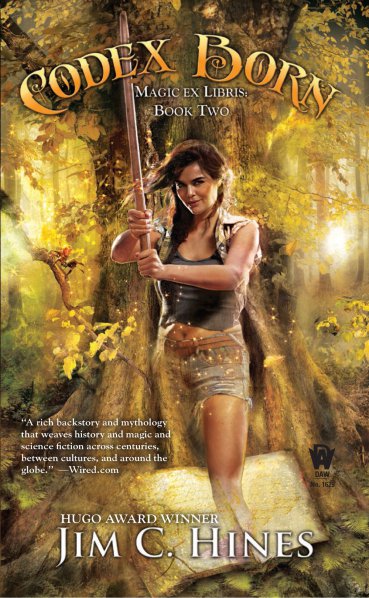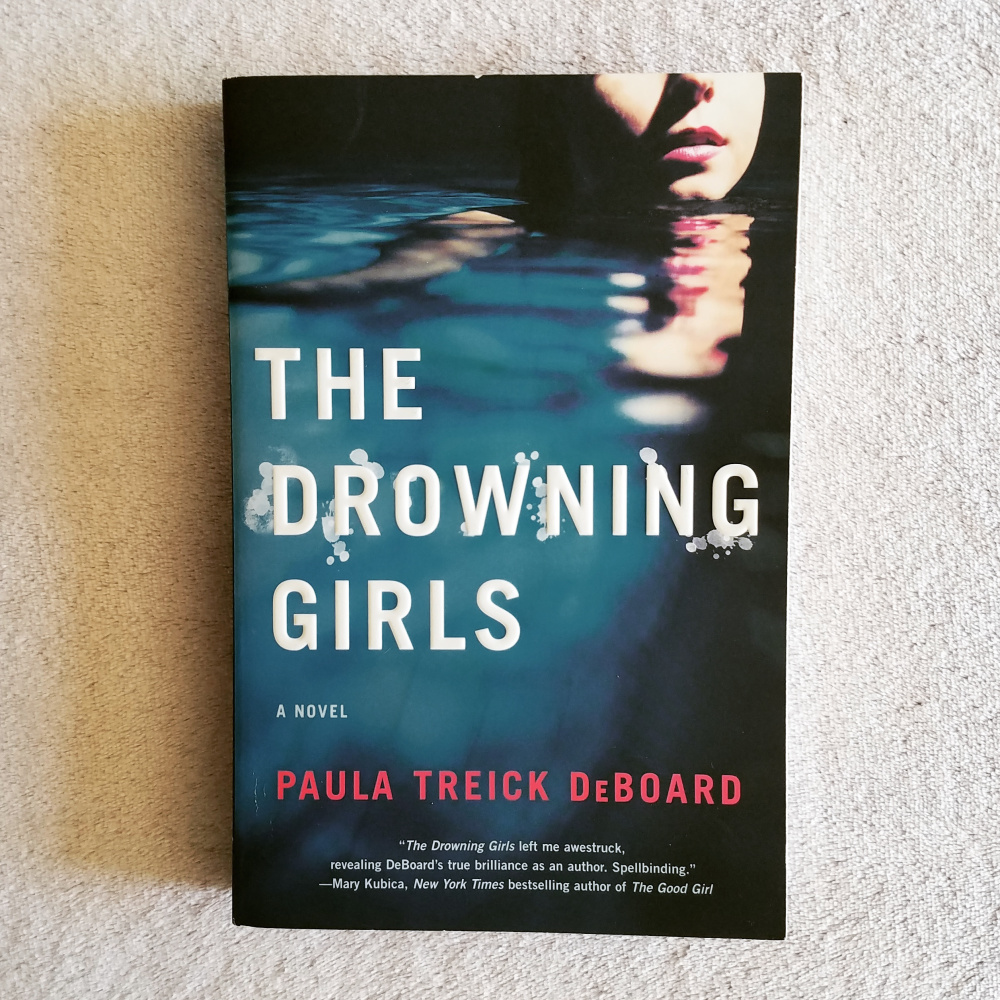
Magic ex Libris Book 2, DAW Books, 2013, 379 pgs.
Having managed to stop an impending war between his group of book-wielding magicians, the Porters, and Michigan’s entire vampire population earlier this year, Isaac’s finally clawed his way out of drudge work and into the research position he’s always wanted. Unfortunately, it’s a research position that involves some rather arduous tasks. Like “working out what the vengeful demons lurking just inside the boundary to magic are.” Or “figuring out how to destroy them when the best minds of several generations have only been able to keep them at bay.” All with an unknown, but crucial, time limit hanging over his head. And even things that should be a break from the stress of that, like solving the mystery of who’s been killing werewolves and wendigoes near his hometown, are having an odd tendency to explode into larger problems. Because that investigation is going to bring Isaac face to face with a long-buried rival organization who hate the Porters, who have magic like he’s never seen, and who are, for some reason, targeting his old partner and new girlfriend, Lena.
I’m going to start by saying that most of this review is predicated on the idea that my thoughts on the first Magic ex Libris book were relatively objective and that the beginning novel in the series was actually as meh as my feelings on it were.
And, well, if you go back to that first review, you’ll see that I don’t think either of those statements are particularly fair, but I also have no other basis for comparison. In spite of the fact that I’m pretty sure my feelings on that book were more to do with my mental state than the novel itself, they were what they were and, outside of a reread, I have no way to pull up anything else.
All that out of the way, I’m happy to say this played out exactly as I had predicted there. Regardless of whether it’s Hines finding his footing with the series or me finding mine with life, I had a hell of a time with this second novel. Everything that I thought was missing in Libriomancer is here in spades: this had the sort of creative, engaging, genre-bending joy that I expect out of a Hines book. The dialogue and action are snappy, the characters’ big personalities shine through, and their crazy schemes in the face of impossible odds have all of the zany vigor you could want.
This if Fun, with a capital F and enough underlying meaning to make the novel more than silly fluff, which has always been this author’s strength.
Again, it’s a little hard to compare with my thoughts on the first novel so uncertain, but even if the problems were with the book itself, it’s all fixed here. This was the sort of light, fast-paced read that I had been looking for.
Working off the assumption that my problems there were on Hines’ head, though, I think I can distill exactly what Codex Born does better than its predecessor down to one word: integration. The mystery, the characters, the action, the themes, all coexist here far more harmoniously than they did in the first, meaning that the fun and the philosophy can work together, rather than being sectioned off into chunks.
If the first book had a plot that was mostly mystery, with bursts of action at key scenes, this has both woven throughout, setting the heavier problem-solving alongside constant little showcases where our magical characters can quip and learn new tricks and show off their powers. This keeps things snappy while allowing more build, making the mystery plot both tenser and far easier to swallow.
The characters, too, feel far more consistent, not in characterization, but in presence. This is probably just down to structure. Libriomancer had Isaac hopping from place to place, trying to figure out what was going on, which meant that, by the nature of the plot, very few characters could be in the entire book. Codex Born has The Porters as an institution preparing for war, which means that everyone is present and together from pretty early on in the book, making it easier to not only build quirks and personalities for characters we barely saw in the first, but to build rapport between all of those different personalities.
And while my harping on how much more fun I’m having in this book might make it sound like this is a sillier, less intelligent novel than its predecessor, that’s really not the case. This keeps all of the things that were strong about Libriomancer, and Hines’ ambitions for the series are still very obvious.
There’s still a crazy amount of things going on here, in the plotting, in the meta, in the morality, in the genre deconstruction. All those heavy ideas about collective media experience, love of narrative, and personal agency? Still here. All the surreal, metaphorical language that seemed like such a departure for this author? Check. All the shades of gray, down to the head of the Porters being the shadiest of the shady? Uh-huh. All the questioning of the tropes of urban fantasy, from simple things like giving our heroes magical therapists so they don’t have to tough it out until they’re broken to something as big as asking whether magic is even a desirable thing to have? Yep.
You’d think those weighty ideas would be the sticking point, too; they certainly were in the first book, for me. Most people don’t find philosophy fun or easy to set alongside action one-liners, but if anything we get more depth on those themes and somehow it works. Hines is a clever enough author to integrate by shading in his world rather than by flattening it, which might have something to do with how well he always thinks his worldbuilding through.
I’m trying to figure out why this flows so much better for me. Maybe it is just the structure; hopping from place to place creates a far more episodic plot by its nature. Maybe it’s the fact that we’re starting to get into the meat of the story, which means that Hines, as an author, is free to exposit less and reveal more.
Or maybe it’s just that I read this is a relatively sensible time period, rather than over two months with weeks-long gaps in between sittings, as I did with the first: that sort of thing can make any novel seem disjointed.
Either way, I’m smiling and laughing at all the neat little genre touches and references again, which is most of what I want from Jim Hines. I can honestly say I’m looking forward to the third in this series on its own merits, rather than as a litmus test for my mental state. And, while I can’t say I doubted that much, that really was what I was hoping for here.
Advertisements Share this:




